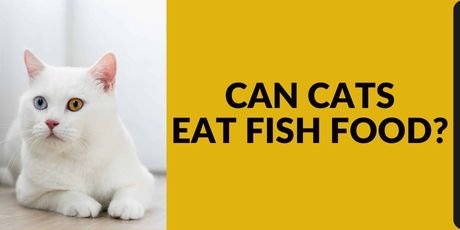When pet owners see their cats perk up at the sight of a can of tuna, it raises questions about the safety of fishy foods for our furry friends. While tuna packaged for people might seem tempting, it often contains ingredients not suitable for cats. This curiosity extends to whether it’s safe to feed cats food that is based on or contains fish.
Delving into this subject reveals different answers for various aspects of the question. Although it’s okay to give your cat a little fish food, it should only be a small part of their diet. Canned fish, for instance, is problematic due to its high salt content and should only be offered as a small treat now and then. Conversely, fish-flavored cat foods are generally perfectly fine and can be a good way to keep your cat interested in their diet.
In an anecdotal instance, when my aquarium fish ran out of food, I grabbed a can of cat food off the shelf in a pinch. This led me to ponder, “Can cats eat fish food?” A quick online search revealed that some people swear by feeding their cats fish food as a dietary supplement. The short answer is yes, cats can have fish food, but it should be just a supplement and not a main meal. Fish food is high in protein and fat, which can be beneficial for your cat’s coat and skin, and also contains omega-3 fatty acids that are good for their joints. However, due to its high mercury content, it’s advisable to feed only a small amount as part of a balanced diet.
Can Kittens Have Fish Food?
When it comes to kittens and fish food, thorough research is key. As a pet owner who prioritizes the well-being of my pets, I’ve always been cautious about introducing new things into my home, especially when it comes to their diet. Based on expert advice and my own experiences, fish food should be approached with caution for kittens. Their digestive system isn’t fully developed in the early months, making it challenging for them to handle the high protein content typically found in fish food.
Most experts recommend waiting until a kitten is at least six months old before feeding them fish food. This is because younger kittens might have trouble digesting such nutrient-dense food. While fish food can be safe in small amounts for older kittens, it’s crucial to ensure that it’s introduced gradually and constitutes only a small part of their diet. Balancing their nutritional needs with food that their young systems can handle is essential for their growth and health.
Also Read: Why Do Cats Like Fish?
Can Cats Eat Tropical Fish Food?
When it comes to feeding your cat, you might be wondering if it’s safe to share some of your tropical fish food. The short answer is yes, cats can nibble on fish flakes, but there are important considerations to keep in mind. Tropical fish food, especially fish flakes, is a popular type of food often made from ground-up fish. However, not all fish foods are created equal for feline consumption.
While whole fish is a natural part of a cat’s diet, tropical fish food can sometimes contain artificial colors and flavors that you might want to avoid. Additionally, some fish foods are high in salt, which can be harmful to your cat’s health. Therefore, it’s crucial to make sure the fish food you offer does not contain these potentially harmful ingredients.

Can Cats Eat Koi Fish Food?
As someone with a home graced by a fish aquarium, I’ve often found myself wondering whether it’s safe to feed my cat some tropical fish food. This curiosity was especially piqued when I noticed my cat eyeing the fish food with interest. From my personal experience and a bit of research, I’ve gathered some insights that might resonate with other cat owners.
Initially, I was hesitant. Tropical fish food and koi fish food, commonly found in households with a koi pond or tropical fish, aren’t typically meant for cats. While cats can technically eat koi fish food, it’s essential to keep in mind their natural dietary needs. Cats are carnivores, requiring a diet rich in animal protein to thrive. Though koi fish food can be nutritious, it isn’t an ideal supplement to a cat’s diet as it may lack essential vitamins and minerals that cats derive from animal sources. In my case, I’ve found that my cat is quite fond of koi food, but I make sure it’s just an occasional treat and not a significant part of their diet.
When considering fish aquarium foods like tropical fish food, it’s crucial to avoid options high in salt, which can be harmful to a cat’s health. As a responsible cat owner, understanding what to share with your feline friend is key. Cats might seem interested in fish food, but it’s not always conducive to their well-being.
To sum it up, while it’s generally safe to let your cat have a small amount of koi fish food, it shouldn’t replace their regular, balanced diet designed for their specific nutritional needs. Remember, every cat is unique, and what works for one may not suit another. As a cat owner, always prioritize their health and dietary needs, ensuring they get the right animal protein and nutrients to stay healthy and happy.
Is there any Fish Food That Is Toxic to Cats?
As a pet owner and enthusiast, I’ve spent considerable time researching this topic, driven by the same first question you might have in mind: can cats safely eat fish food? Initially, I was quite relieved to find out that there are no known fish foods that are inherently toxic to cats. However, this doesn’t mean all fish foods are safe. If a cat ingests too much of certain types, it can be harmful.
As I mentioned earlier, some fish foods are high in mercury. It’s important to remember that while mercury isn’t immediately toxic, it can accumulate over time in a cat’s body. Therefore, it’s crucial to feed only a small amount as part of a balanced diet.
Another aspect to consider is the presence of artificial colors and flavors in fish food, which might not be ideal for your cat’s health. I always make it a habit to check the ingredients list before feeding any type of fish food to my cat. This simple step helps me ensure that I’m not exposing her to unnecessary chemicals or additives.
Nutritional Value of Fish Food for Cats
In my experience as a cat owner and through extensive research, I’ve compiled a list highlighting the nutritional benefits of fish food for cats. While it’s tempting to share this type of food with our feline friends, it’s crucial to understand its suitability. Fish food, rich in proteins and Omega-3 fatty acids, can be beneficial for cats in small quantities. However, it lacks certain cat-specific nutrients like taurine, essential for their health. Thus, while a nibble here and there won’t harm, fish food should never replace a cat’s specialized diet. This knowledge is vital for any cat owner seeking the best for their pet’s well-being.
Also Read: Can Cats Eat Olives?
-
Excellent source of protein for cats
As a seasoned cat owner, I’ve learned that fish food can be a great supplement for cats, particularly due to its high protein content. This protein is essential in maintaining strong and healthy muscles in cats. While fish food isn’t a complete dietary solution, its inclusion in small amounts can significantly promote a healthy coat and skin. The key lies in its balance with their regular meals. Remember, while fish food can be beneficial, it should be used judiciously to complement their specialized feline diet.
-
Good source of omega-3 fatty acids
Drawing from my experience with feline nutrition, I’ve observed that fish food can be an excellent source of omega-3 fatty acids, offering significant nutritional benefits for cats. These nutrients are essential for maintaining healthy and mobile joints, and can even help reduce inflammation throughout the body. Although not a complete dietary solution, incorporating fish food into a cat’s diet can promote a stronger immune system. However, it’s important to balance this with their regular cat food to ensure a well-rounded diet.
-
Rich in vitamins and minerals
As someone deeply involved in cat care, I’ve learned that fish food is not just a treat; it’s rich in vitamins and minerals that are essential for a cat’s overall health. It’s a good source of vitamin A, crucial for vision and skin health. Additionally, vitamin D in fish food helps maintain strong bones and teeth, while B vitamins support energy metabolism and nerve function. Although it’s beneficial, fish food should complement, not replace, a cat’s balanced diet to ensure they get all the necessary nutrients for optimal health.
What are the Risks of Feeding Fish Food to Cats?
From my expertise in feline nutrition, while the nutritional benefits of fish food for cats can be enticing, it’s equally important to be aware of the potential risks. Fish food, primarily formulated for aquatic animals, may not provide the balanced nutrition cats require. Its regular consumption could lead to nutritional imbalances or deficiencies in essential feline nutrients. Therefore, while fish food can be an occasional treat, relying on it as a significant part of a cat’s diet could inadvertently harm their health.
-
Risk of mercury poisoning
When considering feeding fish food to cats, one of the significant risks is the potential for mercury exposure. Fish food, especially those made from larger fish, can contain high levels of this heavy metal, which can build up in the bodies of cats over time. This accumulation can lead to serious health problems, including neurological problems, gastrointestinal problems, and kidney damage. In severe cases, mercury poisoning can be fatal. It’s crucial to be aware of these risks and take steps to mitigate them.
It’s important to choose fish food that is low in mercury. Always check the label of the product for mercury content before offering it to your cat. While fish food can be a source of beneficial nutrients, ensuring it’s safe from harmful substances like mercury is vital for maintaining your cat’s health and well-being.
-
Risk of gastrointestinal problems
A notable risk associated with feeding fish food to cats is the onset of gastrointestinal problems. Fish food is often high in protein and fat, which can be hard to digest for some cat’s stomachs. The symptoms of such digestive issues include vomiting, diarrhea, and constipation. Based on my experiences with feline health, if your cat shows any of these symptoms after consuming fish food, it’s imperative to consult a vet right away. The specific composition of fish food, while beneficial for fish, might not align well with the digestive needs of a cat.
Also Read: Cat Themed Party Food
How Much Fish Food Should I Feed My Cat?
A common concern when feeding a catfish food is determining the right quantity. As a supplement to their regular diet, it’s crucial not to overdo it to avoid potential health problems. Through my research and experience, I’ve found a general rule of thumb: limiting fish food to about 1/4 cup per day, ideally divided between two meals rather than given all at once. This amount ensures that your cat benefits from the nutrients in fish food without compromising their overall diet and health.
However, every cat is unique, and what works for one may not suit another. It’s always wise to consult a veterinarian before introducing any new diet components, including fish food. They can help determine the best amount based on your cat’s individual needs. Remember, while fish food can be a tasty treat for cats, their regular, balanced diet should always take precedence.

Do Cats Like Fish Food?
Cats often show a natural affinity for fish food, which can be attributed to their instincts and the enticing smell of fish. This inclination harks back to their ancestors, feral cats, who frequently hunted in shallow streams and ponds, preying on smaller fish. In the modern domestic setting, this preference is evident when cats eagerly consume fish-flavored kibble or a can of tuna. Even the mere opening of a package of fresh fish can quickly gather their attention.
However, it’s important to remember that cats can be notoriously picky about their food. While some may leap at the chance to try fish food, others might show indifference. It’s often a game of experiment with different flavors and types of food, ranging from fish to chicken. If your cat is refusing to eat something new, don’t fret. It might just be their way of asserting their preference, and they are unlikely to let themselves go hungry.
Is Chicken or Fish Better for Cats?
In many cases, determining whether chicken or fish is better for cats depends on how the food is prepared and ensuring it is safe for your cat. Chicken is often recommended as it is low in fat and high in protein, and contains many of the nutrients a cat needs. However, this doesn’t mean that chicken should be the only or complete food for your cat. Fish also has its place in a cat’s diet but remember to make sure your cat is getting a balanced diet.
Occasionally, you can give your cat a variety of foods to ensure they get all the necessary nutrients. While chicken is better in some aspects, mainly because it’s high in protein, contains essential amino acids, and is generally safe when prepared properly, it’s not the only option. In cases where variety is needed, incorporating low-fat, nutritious fish can be beneficial.
However, this doesn’t mean that either chicken or fish should be a complete food source. The key is balance and ensuring your cat is getting a variety of foods. Whether you choose fish or chicken, always make sure it’s prepared safely and forms part of a balanced diet.
Also Read: Corn Gluten Meal in Cat Food
Can You Cook Fish to Feed Your Cat?
Indeed, feeding your cat fresh fish that is fully cooked can be a good idea, but it should be noted that it’s nutritionally incomplete. While fish can be a healthy supplement, it should remain limited to an occasional treat rather than a large part of their diet. Always avoid any seasoning when you cook it, and serve it in small portions. Remember, while fish can offer variety and some nutrients, it should not be a replacement for their everyday food.
Can Cats Eat Goldfish Food?
While goldfish food may appear nutritious, it is not something I would recommend as a cat food or even a cat food supplement. It’s essential to stick to foods designed for cats, which contain the specific nutrients and calories a cat needs. Goldfish food, being formulated for a different species, lacks certain essential elements required for a cat’s health.
Conclusion
When it comes to “Can Cats Eat Fish Food,” moderation and caution are key. While fish food can offer benefits like high protein and omega-3 fatty acids, it should only be a small part of a cat’s diet due to its lack of certain cat-specific nutrients and potential health risks like mercury poisoning and digestive issues. It’s essential to prioritize a balanced diet for cats, tailored to their unique nutritional needs. Occasional treats of fish food or well-prepared fresh fish are fine, but they should not replace specially formulated cat food. Always consult with a veterinarian before making significant changes to your cat’s diet to ensure their health and well-being. Remember, the best diet for your cat is one that meets all their nutritional requirements while keeping them happy and healthy.







